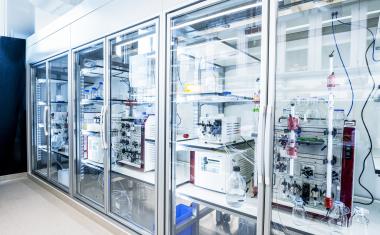Monsanto, DuPont Settle Lawsuits, Set New $1.75 Billion Deal
Monsanto and DuPont have settled a bitter legal battle over rights to technology for genetically modified seeds and will drop antitrust and patent claims against each other while forging a new collaboration, the companies said on Tuesday.
The deal tosses out a $1 billion jury verdict DuPont was ordered to pay Monsanto last August. Instead, the companies agreed that DuPont would make at least $1.75 billion in royalty payments over several years in exchange for broad access to develop products using Monsanto's leading genetic technology.
Still, DuPont officials said the agreement was a win for shareholders and sets up its Pioneer agricultural seed unit for future growth.
"This is a smart deal for DuPont," Paul Schickler, president of DuPont Pioneer, said in an interview. "We've got access to two additional technologies that we can now combine with our existing technologies as well as the technologies that are in our pipeline."
DuPont Pioneer will have broad rights to key new technology that include stacking of traits, Schickler said.
Monsanto, which generates revenues both through seed sales and licensing of its genetic seed technology to other companies, said the deal should bring in far more than the minimum $1.75 billion as DuPont pushes the company's technology through its broad customer base.
"They were and are the largest soybean company in the world, the United States for sure," said Scott Partridge, vice president/strategy for Monsanto. "We are pleased to have them again as a customer for our newest technology. It is another avenue to put the highest-performing product in the hands of farmers."
Under the agreement, which Schickler said came together over the last week, DuPont is to make four annual fixed royalty payments totaling $802 million to Monsanto from 2014 to 2017.
Beginning in 2018, DuPont will also pay royalties on a per-unit basis for Genuity Roundup Ready 2 Yield soybean technology and Genuity Roundup Ready 2 Xtend for the life of the agreement in exchange for continued technology access. Annual minimum payments through 2023 will total $950 million.
DuPont can start testing Monsanto's material in the field this year and will be able to sell Roundup Ready 2 Yield in 2014. And if regulatory approvals are in place, DuPont will be able to start selling the Xtend product in 2015, according to Schickler.
Pioneer will integrate the technology into its own seed germplasm over time, he said.
Access to Xtend is key as it is seen as part of a next wave of herbicide-resistant crop technology aimed at dealing with a wave of herbicide-resistant weeds spreading across U.S. farmland.
The deal also calls for Monsanto to receive access to certain DuPont Pioneer disease resistance and corn defoliation patents.
The settlement comes after a jury in the U.S. District Court in St. Louis awarded Monsanto $1 billion in August, agreeing with the company that DuPont and Pioneer violated a licensing agreement for use of the Roundup Ready trait by trying to stack several traits together.
DuPont was pursuing a separate case against Monsanto, alleging anti-competitive behavior, and a hearing in that matter was set for this fall. But under the settlement, each side is dropping its claims against the other.
Both DuPont and Monsanto hold strong positions in the U.S. seed industry. They and other competitors have been racing to develop improved crops through genetic modifications and other means.
Pioneer, which generated sales of $7.3 billion in 2012, has been gaining market share in North American soybean and corn markets, and its brands have been popular with farmers.
Monsanto, which had $13.5 billion in sales last year, is seen as the market leader in developing genetically altered crop technology and is the world's largest seed company.
Monsanto introduced its Roundup Ready soybean technology in 1996. Roundup Ready crops can tolerate sprayings of Roundup, or glyphosate-based, herbicide. And the technology has become a foundation for many key crops, including corn, alfalfa, cotton, canola and sugar beets.


















